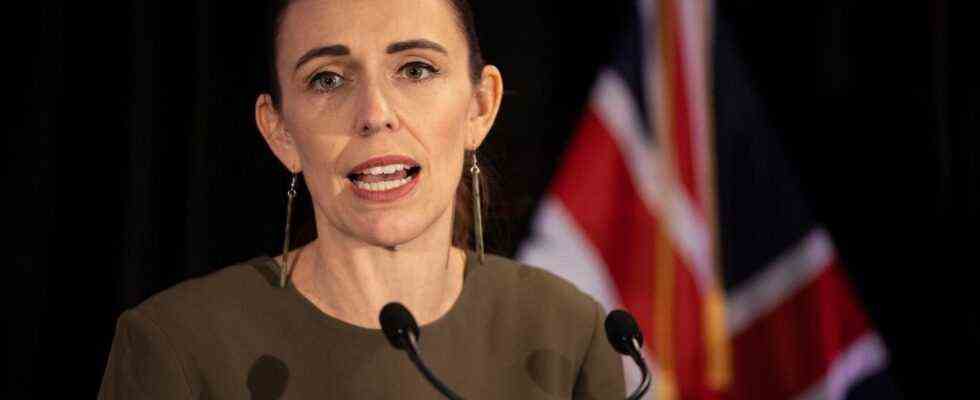Self-determined dying
Popular referendum: New Zealand legalizes active euthanasia
New Zealand’s Prime Minister Jacinda Ardern voted “yes” to the euthanasia vote
© George Heard / DPA
Euthanasia – whether passive or active – is an issue worldwide, but supporters and critics can rarely agree on a regulation. Not so in New Zealand. There, terminally ill patients are given the opportunity to determine their own death.
In New Zealand, so-called medically assisted suicide in the form of active euthanasia is legal. A little over a year after a referendum, the End of Life Choice Act came into effect, with 65.2 percent of New Zealanders voting yes. This is reported by the American news agency “Voice of America” (VOA).
Proponents of the law praise that New Zealanders who “suffer terribly at the end of their lives” can now experience self-determined freedom of choice, compassion and dignity, according to the VOA report. To be eligible for euthanasia, the person concerned must have an incurable disease that is expected to end their life within six months. Alternatively, there must be a significant level of suffering with a visible deterioration in well-being, says the news agency Euronews. The person must still be able to undoubtedly be able to make an informed and self-determined decision about the suicide.
Proponents of the law welcome the self-determined option
The deputy chairman of the right-wing liberal “ACT New Zealand Party” Brooke van Velden had particularly advocated the new law. She told Radio New Zealand that the measures would benefit the popular country in the South Pacific: “This weekend, New Zealand became a friendlier, more compassionate and humane society, as there are people struggling with their terminal disease in their last days and suffering gives freedom of choice and compassion to decide how and when to go, “said Velden.
However, even after the law came into force, critics warn that patients with chronic diseases could possibly feel obliged to use the accompanying suicide as a means not to burden their families, the VOA explains. It is also criticized that “inadequate palliative care services” have to be better equipped so that terminally ill patients can be better cared for.
There are also fears that “euthanasia” could be used to reduce health costs and that the disadvantage of the Maori indigenous people and citizens of the Pacific Islands could be increased, the Ärzteblatt noted in a report on the law.
Church wants to assist patients during euthanasia
Church officials have said that they oppose the “willful killing of human life,” according to the VOA. Nevertheless, they want to offer care and advice to people who opt for “euthanasia” under the new laws.
The government has appointed three experts, including a medical ethicist, to oversee the implementation of the law. New Zealand Prime Minister Jacinda Ardern said she voted “yes” in the referendum on voluntary euthanasia and the legalization of recreational cannabis last year.
Euthanasia – active or passive – is only legal in a few countries
New Zealand joins a previously small group of eight countries in which active euthanasia is legal. Thirteen countries around the world allow medically assisted suicide, including Germany, Switzerland and, from 2022, Austria. The Netherlands was the first country to legalize active euthanasia.
Sources: Voice of America (VOA), Medical journal, Euronews, New Zealand Parliament

